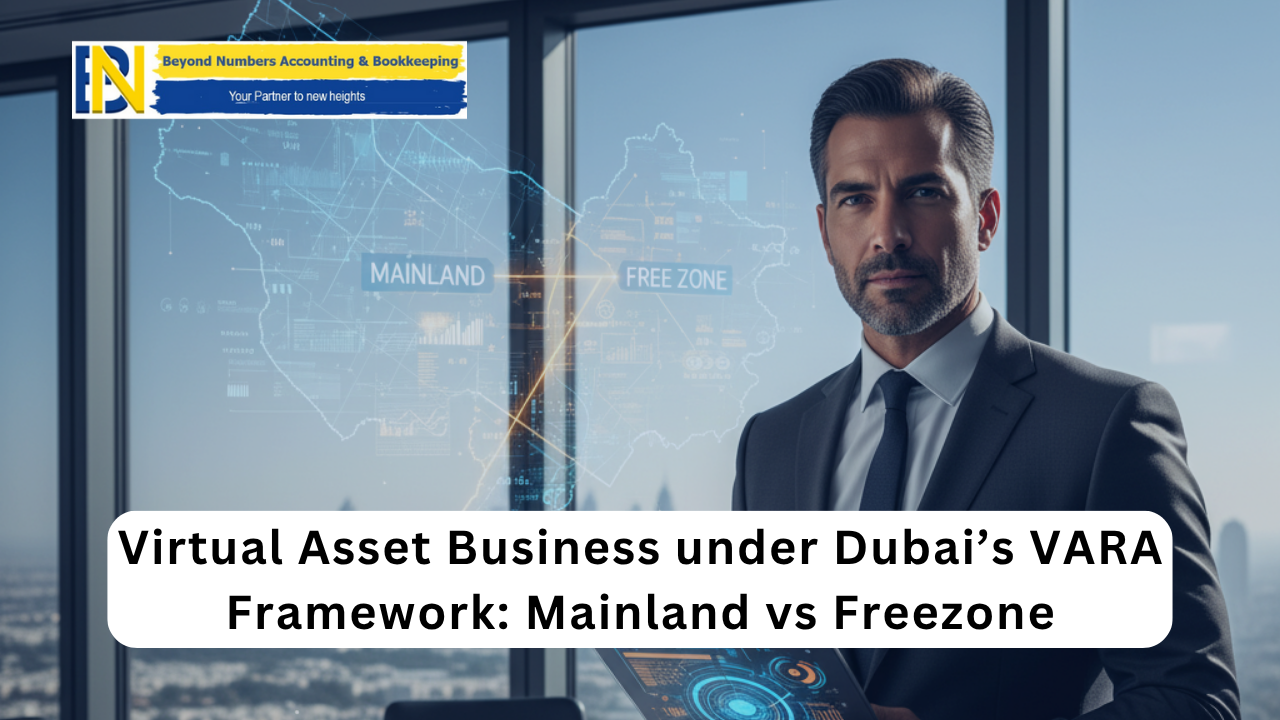Dubai’s establishment of the Virtual Assets Regulatory Authority (VARA) has irrevocably repositioned the emirate as a premier, regulated global hub for the digital asset industry. For a Virtual Asset Service Provider (VASP) seeking authorization, the overarching requirement is unequivocally clear: any entity conducting virtual asset (VA) activities in or from the Emirate of Dubai must secure the requisite license from VARA, excluding only the Dubai International Financial Centre (DIFC), which retains its separate regulatory framework. However, the foundational decision – whether to incorporate the legal entity in the Mainland (Dubai Economy and Tourism, or DET-licensed) or a designated Free Zone (FZ) – introduces critical, strategic differentiations that substantially affect a VASP’s operational scope, fiscal liability, and market access.
The core regulatory distinction lies not in the VARA licensing requirements, which remain activity-based, rigorous, and uniform across both jurisdictions, but rather in the inherent commercial and structural prerogatives of the underlying corporate vehicle.
The Uniformity of VARA’s Mandate
Irrespective of the geographical zone of incorporation, all Virtual Asset Service Providers (VASPs) are subject to the same stringent, comprehensive VARA regulatory architecture, codified under the Virtual Assets and Related Activities Regulations 2023. This framework mandates compliance across critical operational and financial domains:
- Activity-Based Licensing: VARA operates on an activity-based licensing model, delineating eight regulated services, including Broker-Dealer Services, Custody Services, Exchange Services, and Management and Investment Services. A VASP must secure the specific permission for each service it intends to offer.
- Capital Adequacy: Licensing is contingent upon meeting prescribed Paid-Up Capital and Net Liquid Asset (NLA) thresholds. For instance, Custody Services necessitate a capital injection of AED 4 million, while an Exchange Service requires AED 5 million. These cumulative capital burdens are consistently enforced whether the VASP is domiciled on the Mainland or in a Free Zone.
- Compliance Infrastructure: All license holders must implement robust full-stack compliance systems, specifically addressing Anti-Money Laundering (AML) and Counter-Terrorism Financing (CTF) protocols, including adherence to the FATF Travel Rule, rigorous technical and cybersecurity standards, and mandatory annual audits.
- Physical Presence: VARA stipulates a mandatory physical presence in Dubai, requiring the VASP to secure a commercial office lease and appoint responsible individuals, thereby reinforcing the substantive operational nature of the business.
Strategic Disparity: Mainland vs. Free Zone Licensing
The crucial variance materializes in market access, corporate taxation, and employment flexibility. This choice necessitates a calculated projection of the VASP’s target clientele and long-term expansion trajectory.
Mainland (DET) VASP Structure
A VASP licensed by VARA through a Mainland entity registered with the Dubai Economy and Tourism (DET) benefits primarily from unrestricted market penetration across the entire UAE.
| Prerogative | Strategic Implication |
| Market Access | Directly trade with clients and conduct operations across all seven Emirates (onshore). This is critical for VASPs targeting the broader, localized UAE retail and institutional market without necessitating local distribution partners. |
| Expansion & Growth | Offers greater flexibility in securing commercial real estate in prime city locations and permits unlimited visa quotas, directly proportional to leased office space, which is essential for scaling complex, large-scale operations. |
| Government Engagement | Mainland entities are uniquely positioned to bid for and engage in government contracts and public sector tenders, a strategic avenue often unavailable to Free Zone entities. |
| Taxation & Cost | Subject to the standard UAE Corporate Tax rate of 9% on taxable income exceeding AED 375,000 (~ $102,200). This structure often entails higher initial setup costs due to mandatory physical office requirements and DET administrative fees. |
Free Zone (FZ) VASP Structure
Establishing the VASP within a Free Zone, such as the Dubai World Trade Centre (DWTC) or the Dubai Multi Commodities Centre (DMCC) (where permitted and aligned with VARA), provides fiscal and structural optimization geared towards international operations.
| Prerogative | Strategic Implication |
| Ownership | Guarantees 100% foreign ownership with no requirement for a local service agent, streamlining corporate governance for international founders. |
| Taxation & Repatriation | Potential for a 0% Corporate Tax rate if the VASP qualifies as a ‘Qualifying Free Zone Person,’ deriving its income predominantly from ‘Qualifying Activities’ directed at clients outside the UAE Mainland. Furthermore, it allows 100% capital and profit repatriation. |
| Market Access Limitation | A significant constraint is the limitation on direct trading with the UAE Mainland market. To transact or offer services to onshore UAE residents outside the Free Zone, a VASP typically must establish a commercial agreement with a local distributor or agent, or in some cases, a separate Mainland branch. |
| Operational Costs | Free Zone setup often involves lower initial incorporation and renewal fees, coupled with flexible office solutions, rendering it a more cost-effective entry point for entities focused exclusively on global outreach. |
Conclusion and Actionable Insight
The choice between a Mainland and Free Zone registration for a VARA-licensed VASP is a strategic variable that determines your market exposure and long-term operating costs.
- Choose the Mainland if your business model explicitly requires direct engagement with the UAE domestic retail or institutional market, involves large-scale local recruitment, or contemplates public sector contracts.
- Choose a Free Zone if your operational focus is strictly international, prioritizing 100% foreign ownership and the potential for 0% Corporate Tax benefits as a Qualifying Free Zone Person.
Prospective VASPs must meticulously align their corporate structure with their definitive commercial strategy, recognizing that while the regulatory bar set by VARA is constant and high, the commercial pathways provided by the Mainland and Free Zones remain fundamentally distinct. This jurisdictional selection must be validated early in the two-stage VARA licensing process – the Initial Disclosure Questionnaire (IDQ) and the Full License Application—to ensure seamless progression toward operational authorization.

